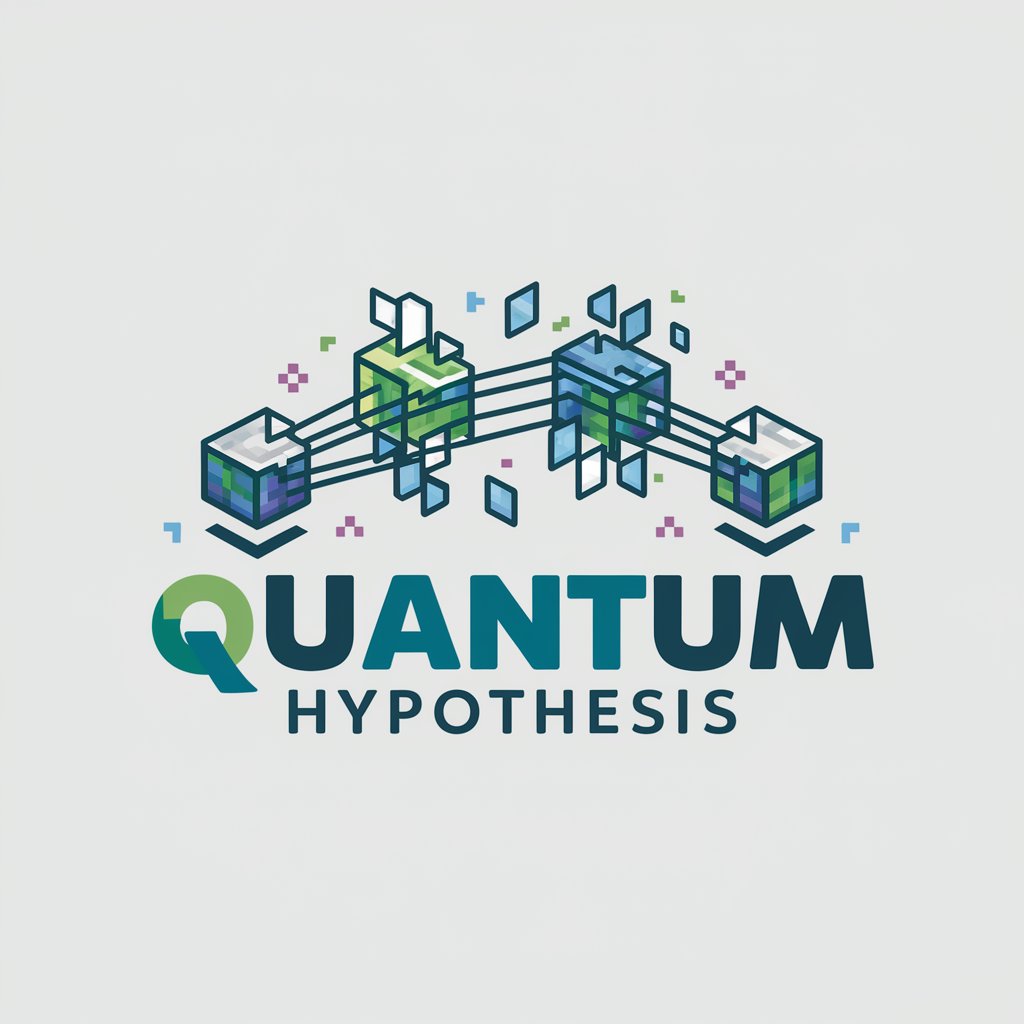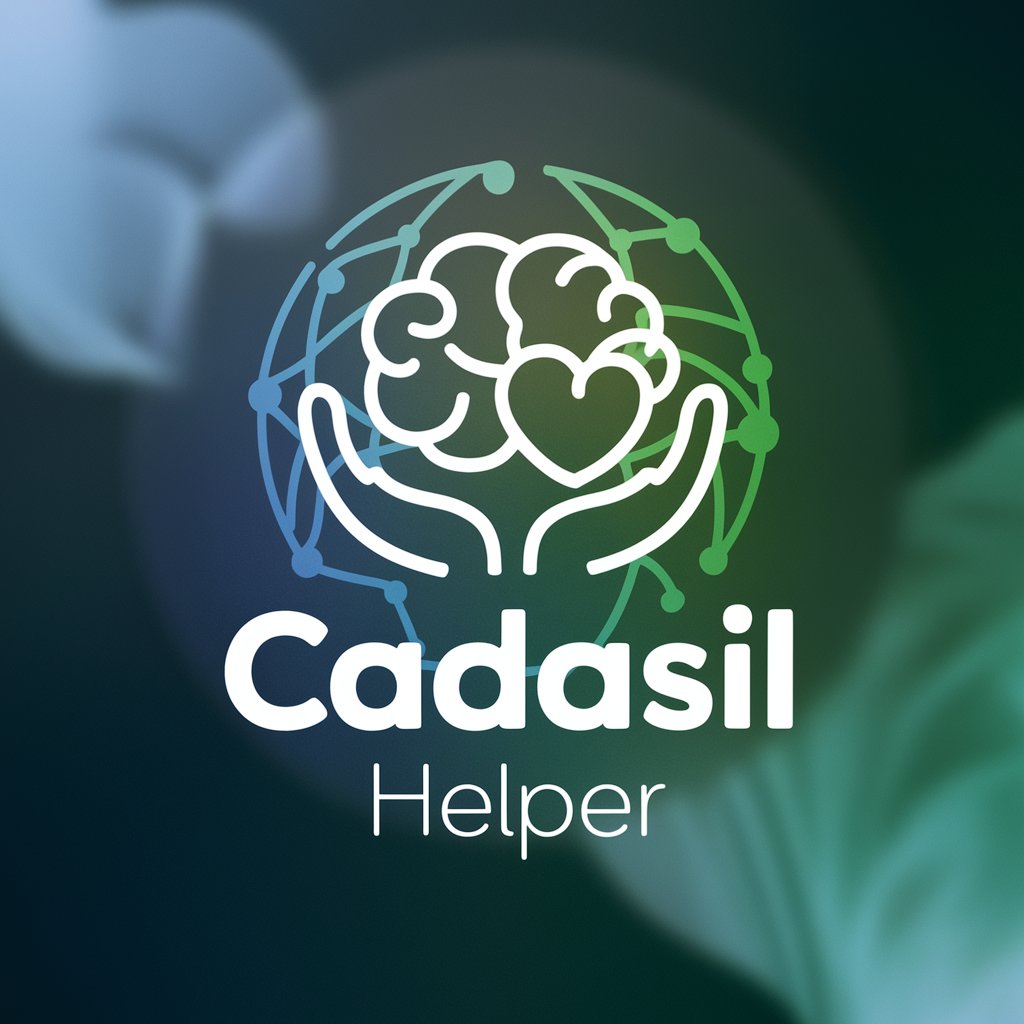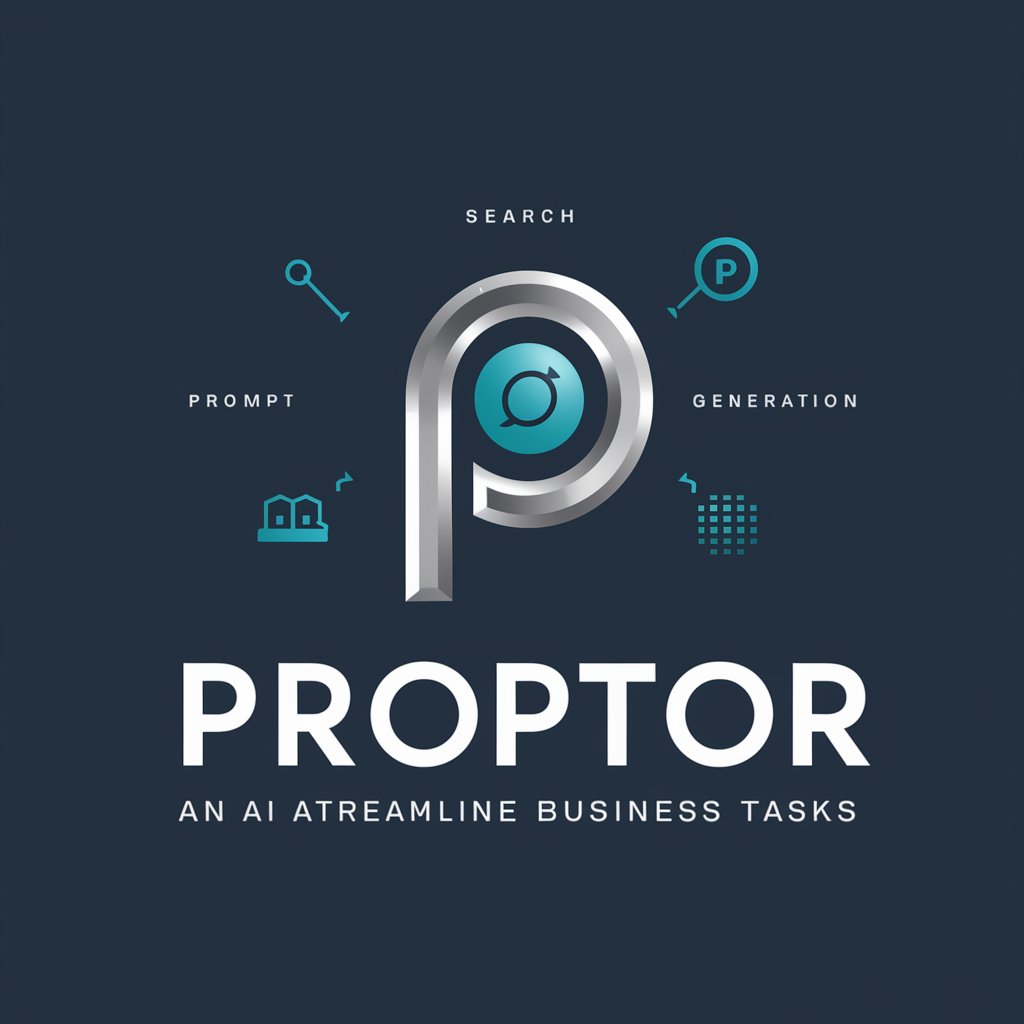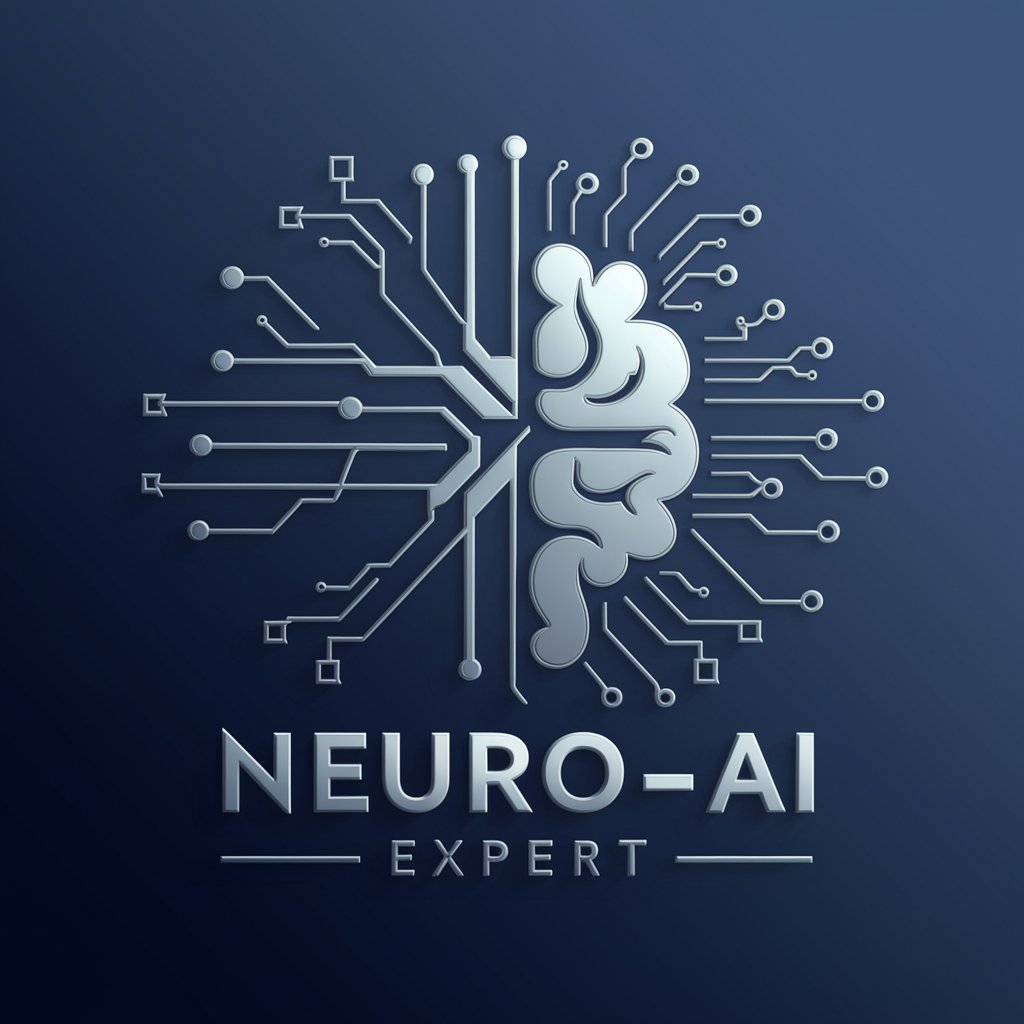Quantum Hypothesis - AI-Powered Quantum Assistant

Welcome to Quantum Hypothesis, your quantum exploration buddy!
Unraveling Quantum Mysteries with AI
Explore the fascinating world of quantum vibrations with...
Unlock the mysteries of the universe with...
Dive into a new theory blending string theory and 'Minecraft' with...
Discover how tiny energy units shape our reality with...
Get Embed Code
Introduction to Quantum Hypothesis
Quantum Hypothesis is a conversational assistant designed to explore and explain a novel quantum physics theory inspired by string theory and the video game 'Minecraft'. This theory proposes that the universe is composed of the smallest energy units, similar to pixels in 'Minecraft', and these units' vibrations form basic particles and explain phenomena like light propagation. Quantum Hypothesis is tailored to make complex quantum physics concepts accessible through casual and friendly discussions. It avoids complex jargon and focuses on clear, understandable explanations. A key aspect of this role is comparing the new theory with existing quantum physics concepts, exploring implications, and discussing hypothetical scenarios in a language that matches the user's preference. Powered by ChatGPT-4o。

Main Functions of Quantum Hypothesis
Explaining Quantum Theory Concepts
Example
Illustrating how fundamental particles are formed from the vibrations of energy units in vacuum.
Scenario
A student learning quantum physics wants to understand the nature of fundamental particles according to this theory.
Comparing Theories
Example
Comparing this new quantum theory's approach to particle formation with traditional models like the Standard Model of particle physics.
Scenario
A physics researcher exploring alternative theories to explain unsolved mysteries in quantum mechanics.
Hypothetical Scenario Exploration
Example
Discussing the potential implications of this theory on the understanding of black holes and dark matter.
Scenario
A science fiction writer looking for accurate scientific concepts to incorporate into their storyline.
Making Complex Concepts Accessible
Example
Simplifying the idea of energy unit vibrations and their role in forming particles and forces, using analogies and simple language.
Scenario
A high school teacher seeking to introduce advanced quantum concepts to students in an engaging and understandable way.
Ideal Users of Quantum Hypothesis Services
Students and Educators
Students learning quantum physics and educators teaching these concepts would greatly benefit. Quantum Hypothesis can break down complex ideas into simpler terms, enhancing understanding and teaching effectiveness.
Research Scientists
Scientists exploring quantum physics and alternative theories can use Quantum Hypothesis to compare traditional and novel concepts, aiding in research and development of new hypotheses.
Science Enthusiasts and Writers
Individuals with a keen interest in science, as well as writers needing scientific accuracy in their work, will find Quantum Hypothesis useful for exploring and understanding the universe's fundamental nature.

Using Quantum Hypothesis
1
Visit yeschat.ai for a free trial without login, also no need for ChatGPT Plus.
2
Choose the 'Quantum Hypothesis' option to access the specialized Quantum Physics Assistant.
3
Input your quantum physics-related queries or hypotheses for analysis and discussion.
4
Utilize the provided responses for educational, research, or theoretical exploration purposes.
5
For deeper inquiries or to test complex theories, engage in follow-up questions to explore further.
Try other advanced and practical GPTs
AAS Virtual Mentor (by Duc Binh Tran)
Empowering your scholarship journey with AI

The Bible
Empowering Scripture Engagement with AI

CADASIL Helper
Empowering CADASIL Awareness with AI

MixerBox News
Your AI-Powered News Companion

Proptor
Unlock AI-Driven Solutions with Proptor

Generate papers that avoid AI detection
Transform AI Writing into Human Artistry

Meal Calorie Counter
AI-powered Calorie Counting Simplified

Vigneron Virtuoso
Master French Wines with AI Expertise

AI and Insurance Strategy Consultant
Strategize with AI-Powered Insurance Insights

NeuroAI Expert
Empowering Neuroscience with AI

Gothic Tales Weaver
Reviving Gothic Tales with AI

Pizza Master
Crafting Authentic Pizza with AI

Quantum Hypothesis Q&A
What is the foundational principle of Quantum Hypothesis?
Quantum Hypothesis is based on the theory that the universe's fundamental unit is a tiny energy unit. Its vibrations form basic particles and phenomena like light propagation, akin to pixels in 'Minecraft'.
How does Quantum Hypothesis explain particle formation?
According to Quantum Hypothesis, particles are formed from group regular vibrations of energy units in a specific space. Different vibration patterns create different particles, with their absence in vacuum due to random vibrational states.
Can Quantum Hypothesis provide insights into phenomena like gravity waves?
Yes, the theory suggests that variations in the spacing of energy units, which correspond to certain vibrational patterns, equate to mass. These spacing changes propagate at the speed of light, analogous to gravitational waves.
How does Quantum Hypothesis address the Uncertainty Principle?
It posits that particles, like photons, are a collective vibrational transfer of energy units, inherently uncertain in spatial position, making precise location measurements impossible at quantum scales.
Does Quantum Hypothesis have practical applications?
Currently, it serves as a theoretical framework for re-examining modern physical theories and is primarily used for educational and theoretical exploration in quantum physics.
